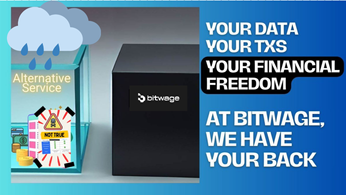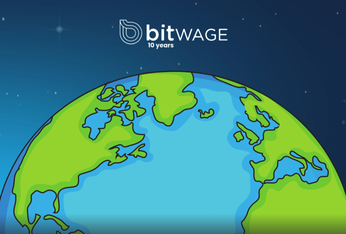
Synapse Bankruptcy: The Risks of Custodial Services
Table of Contents
Over the past year, Synapse, a well-known "banking as a service" provider, has had problems with various partners about customer balances. This only worsened in April of this year, when Synapse filed for bankruptcy protection and halted their services to some partners, including Evolve Bank & Trust.
This ultimately led to bank accounts of tens of thousands of businesses and consumers across the US being frozen. This left many individuals and business entities without access to their funds causing havoc. This abrupt bankruptcy has left not only businesses but end users like this one without knowledge completely lost on what steps to take to get her funds to pay rent. Or Coffeezilla, a well-known YouTuber who made a video about this. Or this brand-new subreddit dedicated to Synapse Victims

The Risks of Custodial Services
As you can see, custodial services where a third party holds and manages assets on behalf of users or businesses are convenient, but they are also risky. The well-known pro-Bitcoin phrase "Not your keys, not your coins" is a statement to this. Pointing out that if you are not in full control of your assets, they are not yours, they are someone else's, and if that someone else were to disappear or, in this case, file for bankruptcy, you are at their mercy!
Some major players in the game, like Juno, Yotta, and GigWage found themselves at the mercy of Synapse, unable to access their funds or even process transactions. Fintech companies usually partner with banks since it is nearly financially impossible to create a new bank due to high costs, leaving user funds at the mercy of their banking partner. To operate this way legally, Fintech companies used Synapse as a middleman.
The Non-Custodial Solution: Bitwage
Bitwage on the other hand, operates under a non-custodial model and is completely unaffected by Synapse's bankruptcy. This model offers a solution to the inherent risks associated with custodial services. Bitwage is not a bank and does not hold user funds. Bitwage receives the funds and converts them into your chosen currency based on your allocation, and we send it your way. We do not keep your money. That goes for both crypto and fiat. We send it to you straight away. Fully non-custodial.
Simplifying International Payroll with Bitwage
Using traditional banking systems has drawbacks such as expensive fees, long processing periods, and in some severe situations, such as this one involving Synapse, the freezing, and inaccessibility of customer funds.
Bitwage simplifies this process by enabling businesses to pay international contractors using our fully Non-Custodial model. Whether you are wondering how to pay foreign contractors or are looking for the best ways to pay overseas contractors. We have got you covered.
With Bitwage, digital finance has evolved. Bitwage lets you have it your way, whether you're looking to receive an international payment for work or want to pay your workers a bonus in a cryptocurrency of their choice.
Let your workers choose which currency they want to receive their salary or payroll in. Be it local currency, USD, Euros, Bitcoin, or stablecoins like USDC.
The Role of Stablecoins in Secure Payroll Solutions

Digital currencies known as "Stablecoins" are taking over the financial landscape. These digital crypto-based assets are pegged 1:1 to fiat currencies such as the US dollar. Stablecoins such as USDC or USDT, provide a reliable store of value without the well-known volatility of crypto assets. This has made stablecoins extremely popular with international workers since they are fast, secure, cheap, and completely decentralized.
Conclusion
The synapse bankruptcy serves as a reminder of the inherent risks associated with custodial banking services. While these things don't happen often, they can happen, as seen in the recent Silicon Valley Bank collapse and Synapse. Companies and individuals should consider these risks when choosing a service provider or turn to non-custodial services like Bitwage, ensuring that funds are always within your control.










